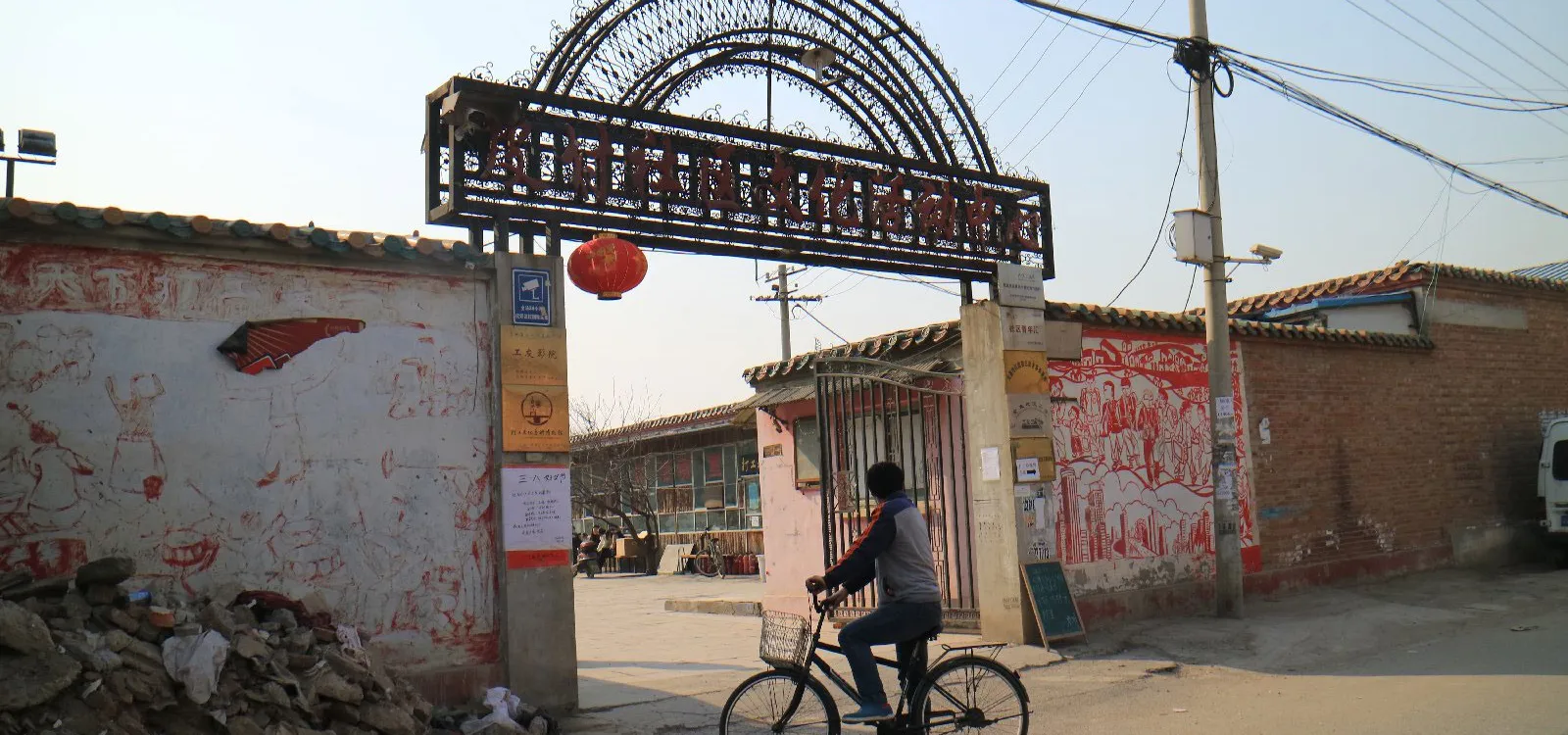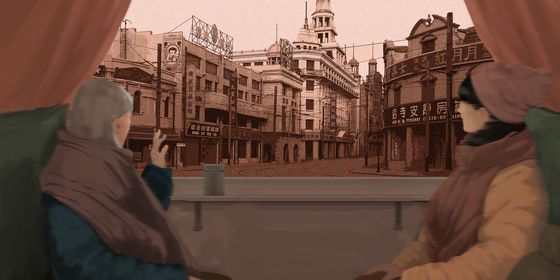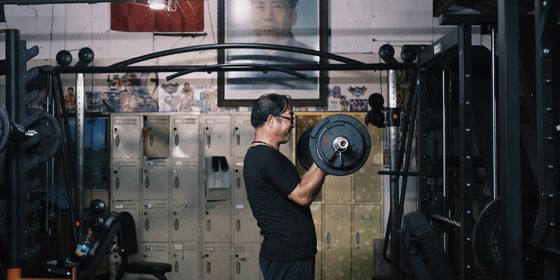Filmmaker attempts to capture nuanced portrait of second-generation migrants
On March 4, in the east wing of a converted courtyard home outside the Fifth Ring northeast of Beijing, where a documentary-style drama called Second-Generation Migrant had just had its first test screening, a miscommunication between director and viewer was being played out in the audience Q & A.
“The premise of the film is to tell the story of second-generation [migrant workers],” said one audience member, part of the university and media representatives invited to the screening, “but if the main character hadn’t said that that was what he was, I wouldn’t have been able to tell; there’s no feeling of dislocation between places.”
“The crucial point is that a second-generation migrant was born in Beijing and is basically a city person, but without the hukou,” director Wang Dezhi, perplexed, replied. “It’s something I’ve observed, so I’m portraying it so others can see it too.” But he was more direct with his thoughts later when speaking to TWOC. “Yeah, I got some useful feedback about technical aspects and how to make the plot more cohesive, but I really don’t think they got the point of second-generation migrant,” he said.
And still later: “I think it’s just prejudice; what I portrayed doesn’t fit with what [the audience] imagined, with their prejudice—they don’t think that’s how [migrants] are. Of course, it’s not malicious, but…there’s one character whose fashion, acting style, and accent were like a ‘first-generation’ migrant, and they felt [she] was more ‘natural,’ but to me those things don’t matter. Actually, that character was exaggerated.”
On the evening of the same day, Second-Generation Migrant was screened for a second time—this time without posters or announcements splashed on WeChat—in the same venue to an audience of migrant workers residing in or near Chaoyang district’s Pi village (皮村), who can catch a film screening here several evenings a week. “I had a co-worker from when I worked in a factory, who asked me. after the first screening, ‘Why did you invite these people here who don’t know what ‘second-generation’ means?’” Wang said. “Yet he had the same position I did and could understand what I was portraying. But then, when we screened it for workers…it might not be a kind of film that they like to watch, to them it’s just real life.”
Second-Generation Migrant is the first feature film made by Wang’s production group, called the New Worker’s Film Group. With no prior filmmaking experience, Wang nonetheless made several short films meant to reflect life inside Pi village.
The plot of Second-Generation Migrant is more or less besides the point—a somewhat aimless young worker, born and raised in Beijing by parents from Henan, tries to start a business and find love; the film’s highlights are the naturalistic dialogue, consisting of actors stumbling over words, and occasional cuts away from the action to conduct mock documentary-style interviews with the lead actor. It’s shot on location in Pi village, an agglomeration of low-lying houses and small shops serving nearly 20,000 migrant workers close to the Beijing International Airport. At times, it’s difficult to tell whether the noise of planes flying overhead comes from inside the film or outside the makeshift cinema.
Unlike most of Beijing’s urban villages, however, film screenings are a major part of life due to the presence of the Worker Friendship Home, a community center started by in 2002 Wang and three colleagues who were all migrants themselves. In addition to the cinema, the center runs the New Worker’s Theater, where they host grassroots performers, a “Migrant Worker’s Spring Festival Gala” each year, and now and then, a “New Workers’ Cultural Festival” featuring migrant performers from around the country.
There’s also a used clothing store, music classes and book clubs for workers, a legal hotline, a school for children of migrant workers barred from local schools due to their household registration status, and a Migrant Worker’s Museum that displays photographs and employment contracts from the local area the past 30 years. Zhang Heng, one of Wang’s colleagues, told China Youth Daily in 2013 that the founding of the Worker Friendship Home as the creation of a new concept: “new workers” (新工人), who embrace the migrant lifestyle, don’t consider themselves to be marginalized, and have no real plans to return to the countryside.
“In the past, society called us ‘migrant workers,’ which suggests we are laborers who are made to ‘go into service,’ but ‘new workers’ has agency, it gives us ownership of our social identity,” Zhang told China Youth Daily. Thus, Wang added to TWOC, “We have arts that speak to our identity.” Both Zhang and Wang had come to Beijing in the 1990s in order to find work in the arts—Wang with plans to become a cross-talk performer on the CCTV New Year Gala—but found the barriers to entry too high, and ended up working as delivery works or in factories while performing in the streets when they could.
Zhang found construction workers to be some of his most dedicated listeners and decided to write songs for them—lyrics like, “Migrant work is glorious…I built the tall skyscrapers, I built the wide avenues” and “This tiny village is our home in the city” became mainstays of workers’ lunch hours around Beijing. After meeting his colleagues, Zhang started the Migrant Worker Youth Artistic Troupe, which changed its name to the Worker Friendship Home in 2005, registered as an NGO, and moved in to three courtyard houses in Pi village where they’ve been ever since, albeit always ready to move out under the demolition orders that all of Chaoyang district’s migrant-heavy “urban villages” are constantly threatened with.
As Wang discovered on Saturday, however, artistic expressions that are so strongly rooted in the personal experience of migrants are not always easy to communicate across identity boundaries.
The romantic notion of the “grassroots” performer making a splash in the entertainment industry is not new to Chinese media; at least one example is offered on each season of shows like The Voice of China as well as the CCTV Spring Festival Gala.
Migrant worker performers are represented in mainstream culture by icons like Xu Ri Yang Gang, a guitar-playing, singing duo whose shirtless, shakily filmed performance of Wang Feng’s “In the Spring” in a dingy worker’s dormitory went viral on video-sharing sites in 2010. They were invited to perform the song again on the CCTV Gala in 2012, and much of their praise came from the visceral melancholy in their voices. Wang Feng, however, later tried to ban the duo from singing the song, telling them, “I wish one day you will create your own works…you cannot last if you only sing covers.”
In the fine line between communicating a strong worker identity and confirming stereotypes, Wang Dezhi believes that it’s important to be clear about his target audience and their relationship with other groups in society. “When it comes to inviting people other than workers [to our events], it ought to be people who are interested in workers, because our performances are rather unpolished so people aren’t interested in coming, and it’s meaningless if they’re not interested.” As part of Wang’s production team, Song Yi, a visual artist based in Chaoyang’s Heiqiao village, as co-director, and said that all the other “outsiders” at the screening were volunteers at the Friendship Home and their friends. “It’s definitely necessary to have events where people from the outside can come, because our abilities and resources are limited, so having ‘outsiders’ is a type of promotion, to make [our] community better known.”
Nonetheless, he noted that the Friendship Home “doesn’t do much marketing, and about 95 percent of our performances are targeted at workers, because commercial entertainment doesn’t fit with the workers’ life experiences, but are for consumers, and it might even be harmful—all those people who ‘take revenge on society,’ or try to take ‘shortcuts’ but who don’t have enough connections or power to pull it off, it’s because of values they learn from consumer media but that aren’t considerate of their economic condition. Workers don’t have enough power to purchase, so there’s no culture for them. It’s important for us to create that.”












